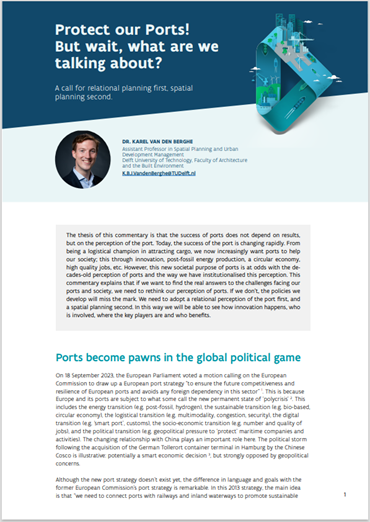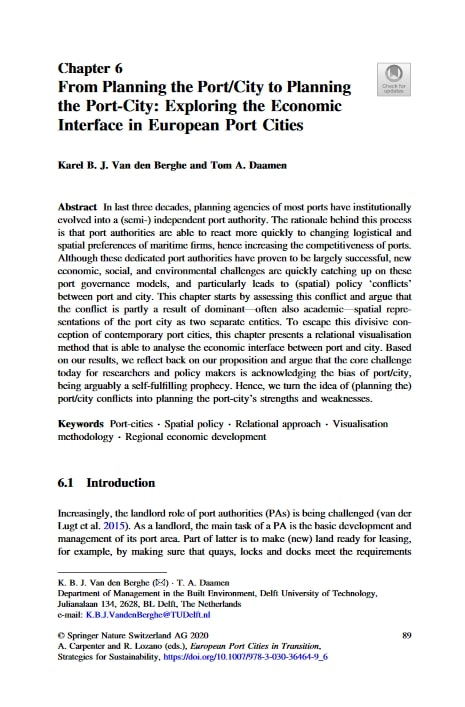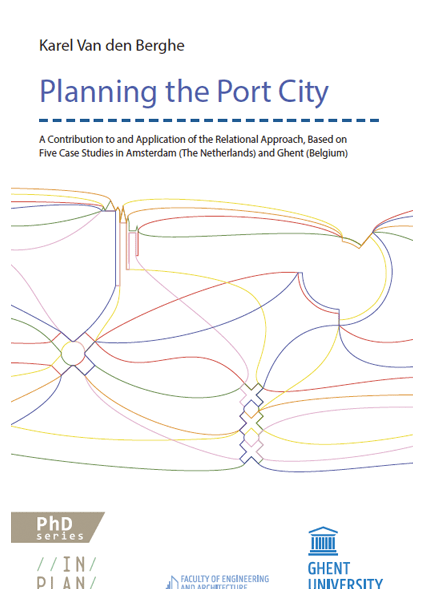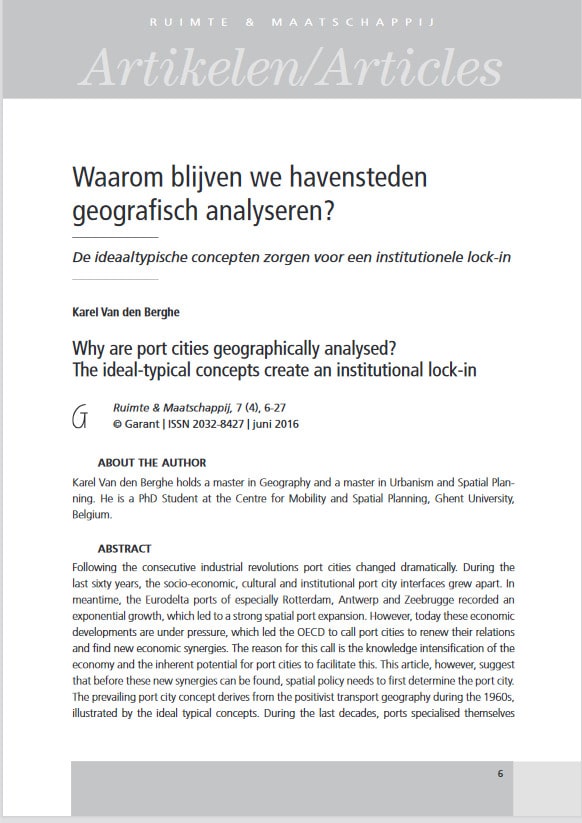Protect our Ports!
But wait, what are we talking about?
The thesis of this commentary is that the success of ports does not depend on results, but on the perception of the port. Today, the success of the port is changing rapidly. From being a logistical champion in attracting cargo, we now increasingly want ports to help our society; this through innovation, post-fossil energy production, a circular economy, high quality jobs, etc. However, this new societal purpose of ports is at odds with the decades-old perception of ports and the way we have institutionalised this perception. This commentary explains that if we want to find the real answers to the challenges facing our ports and society, we need to rethink our perception of ports. If we don’t, the policies we develop will miss the mark. We need to adopt a relational perception of the port first, and a spatial planning second. In this way we will be able to see how innovation happens, who is involved, where the key players are and who benefits.
Cite as: Van den Berghe, Karel (2023) Commentary: Protect our Ports! But wait, what are we talking about?. Circular Ports. Circular Flanders.
This commentary is the written version of the keynote “What’s in a word? A critical realist reading of the port-city, reflecting on perception, action, and context” by Dr. Karel Van den Berghe on the 14 September 2023 during the PULSE conference, University of Genoa, Italy. For more details and the recording of the keynote: What’s in a word? A critical realist reading of the port-city, reflecting on perception, action, and context. — TU Delft Research Portal
For more elaboration on the relational port city, see the PhD of Karel Van den Berghe “Planning the port city : a contribution to and application of the relational approach, based on five case studies in Amsterdam (The Netherlands) and Ghent (Belgium)” Learn more: Planning the port city : a contribution to and application of the relational approach, based on five case studies in Amsterdam (The Netherlands) and Ghent (Belgium) (ugent.be)



